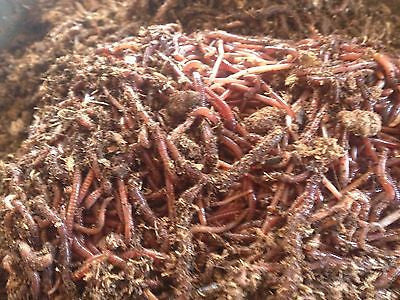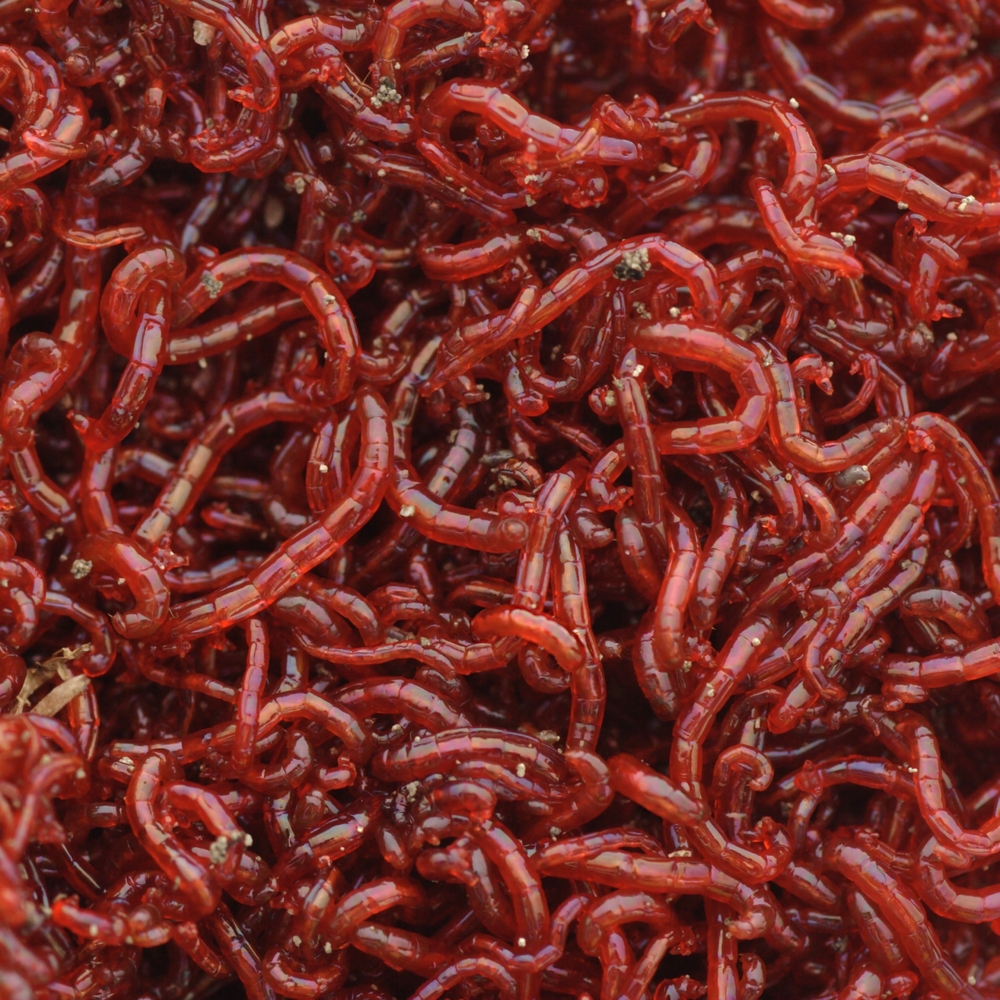Why Red Wigglers Are Essential for Chemical-free Farming
Red wigglers play a pivotal duty in organic farming, mainly via their distinct capability to decay organic products and enhance dirt wellness. The degree of their effect on agricultural practices and soil biology elevates appealing inquiries about the future of organic farming.
Duty of Red Wigglers in Soil Wellness

Additionally, red wigglers improve soil framework by developing networks as they burrow. These channels boost oygenation and water seepage, promoting a healthier origin atmosphere. Their task additionally aids in maintaining ideal wetness degrees, which is essential for healthy and balanced plant growth.

Benefits of Worm Castings
Worm spreadings, the nutrient-rich waste matter produced by red wigglers, work as an effective amendment for natural farming. These castings are packed with vital nutrients such as nitrogen, phosphorus, and potassium, which are vital for plant growth. Unlike artificial fertilizers, worm spreadings launch nutrients slowly, supplying a steady supply with time and minimizing the threat of nutrient leaching and overflow.
Furthermore, worm castings boost dirt structure and oygenation, promoting much healthier origin systems. Their high organic matter material boosts moisture retention, making it possible for plants to much better endure dry spell problems. Additionally, worm castings consist of beneficial bacteria that sustain plant health by reducing virus and enhancing nutrient uptake.
The application of worm spreadings can bring about increased plant returns and boosted top quality of produce, making them an indispensable resource for organic farmers. Their usage also lines up with sustainable farming practices, contributing to soil fertility without the unfavorable environmental effects related to chemical fertilizers. Overall, the incorporation of worm spreadings into agricultural practices promotes a more resilient and productive community, highlighting the importance of red wigglers in organic farming systems.

Enhancing Nutrient Biking
(red wiggler worms near me)Nutrient biking is an important process in natural farming, and the integration of red wigglers plays a pivotal function in enhancing this cycle. These earthworms add considerably to the breakdown of raw material, assisting in the transformation of complicated organic products right into easier, extra obtainable nutrients for plants. As red wigglers take in decomposing raw material, they eliminate nutrient-rich castings, which are including valuable microbes. This microbial task more aids in the decay procedure, making sure that vital nutrients are conveniently available for plant uptake.
Furthermore, red wigglers assist to speed up the mineralization of nutrients, transforming them from inert forms into bioavailable forms that plants can absorb. This process is crucial for maintaining soil fertility and promoting healthy and balanced plant development. The visibility of red wigglers also motivates a varied dirt environment, cultivating an equilibrium of nutrients that sustains numerous Recommended Reading plant varieties.
Improving Dirt Structure
The improvement of soil structure is vital for fostering a healthy and balanced agricultural ecosystem, and the activity of red wigglers dramatically adds to this improvement. These earthworms play an important duty in freshening the dirt and producing a network of networks that help with water infiltration and root penetration. As they tunnel with the soil, red wigglers separate compressed layers, allowing for better oxygen exchange and advertising microbial activity.
Moreover, the raw material created from their waste, referred to as vermicast, boosts dirt aggregation. This process creates stable globs of dirt particles, improving dirt porosity and lowering disintegration (red wigglers). The visibility of red wigglers likewise motivates the development of advantageous fungal networks, which are essential for nutrient uptake by plants
Promoting Lasting Practices
Integrating red wigglers into organic farming techniques not only enhances dirt health and wellness but also advertises sustainable farming techniques. These earthworms play a vital duty in nutrition cycling, changing organic waste right into useful compost that enriches the dirt. By utilizing red wigglers, farmers can properly minimize reliance on artificial fertilizers, consequently lessening chemical overflow and its detrimental impacts on environments.
Furthermore, the consolidation of red wigglers encourages the method of recycling natural materials, such as cooking area scraps and farm waste. This waste decrease approach not just lowers disposal costs yet also cultivates a closed-loop system where nutrients are continuously gone back to the soil (red wigglers). Such techniques are vital in minimizing climate change, as they enhance carbon sequestration and lower greenhouse gas exhausts
Additionally, red wigglers improve water retention in the soil, which is critical in times of drought. Their burrowing activities create channels that enable water to pass through deeper into the ground, thus promoting reliable water use. Eventually, incorporating red wigglers into organic farming not only sustains biodiversity yet also lines up with the concepts of lasting farming, offering a holistic technique to food production.
Conclusion
In final thought, red wigglers play a critical duty in natural farming by substantially boosting dirt health and fertility. Therefore, the assimilation of red wigglers into agricultural techniques is important for advertising sustainability and boosting total dirt quality.